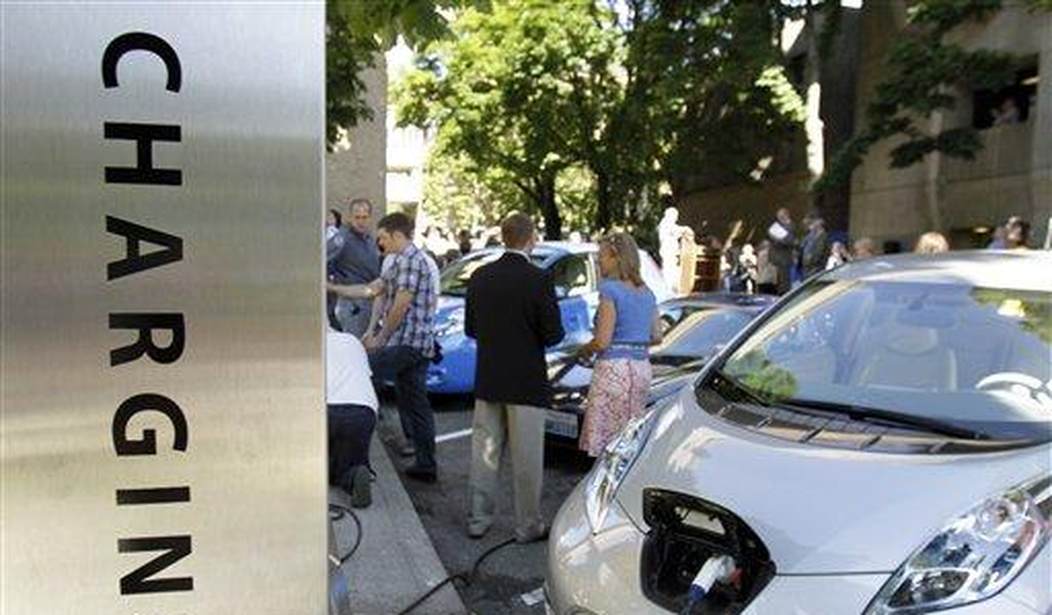The Trump Transportation Department has ordered state transportation directors to "decertify" plans created to spend $5 billion to build thousands of EV charging stations across the interstate highway system.
The program was part of the 2021 Infrastructure Investment and Jobs Act, which included the National Electric Vehicle Infrastructure (NEVI) program. As much as $5 billion was earmarked to build charging stations.
To date, about 30 EV charging stations have been constructed.
It's clear, after nearly four years, that the mountains of red tape the Biden administration forced states to add to the program — including DEI mandates, environmental impact statements, and other impediments — would make the NEVI program take years to complete.
“The new leadership of the Department of Transportation (U.S. DOT) has decided to review the policies underlying the implementation of the NEVI Formula Program,” wrote Emily Biondi of the Federal Highway Administration in a letter to state transportation agencies.
“Therefore, effective immediately, no new obligations may occur under the NEVI Formula Program until the updated final NEVI Formula Program Guidance is issued and new State plans are submitted and approved,” Biondi wrote.
It's a process that will take months. Where I'm sitting, it's necessary. NEVI had turned into a $5 billion boondoggle, and perhaps streamlining the entire process would speed up the construction of the stations.
Exclusively for our VIPs: The 'Disparate Impact' Fallacy Should End Along With DEI
Naturally, there is opposition to the plan. A federal judge recently delayed the executive order to "freeze" federal spending. And there's a question of whether the plans ordered by Biden to be formulated by the states regarding EV charging stations can be halted at this late date. States have poured millions of dollars into developing these plans and getting competitive bids to build the stations, and some states have begun building them.
Andrew Rogers, a former deputy administrator and chief counsel of the Federal Highway Administration, says, “There is no legal basis for funds that have been apportioned to states to build projects being ‘decertified’ based on policy."
It’s unclear how the DOT’s order will affect charging stations that are under construction. In the letter, FHWA officials write that “no new obligations may occur,” suggesting states may not sign new contracts with businesses even if those states have been allocated federal funding. The letter also says “reimbursement of existing obligations will be allowed” as the program goes through a review process, suggesting states may be allowed to pay back businesses that have already provided services.
Billions in federal funding have already been disbursed under the program. Money has gone to both red and blue states. Top funding recipients last year included Florida, New York, Texas, Georgia, and Ohio.
Electric vehicles are here to stay. The chargers are going to be built. The money has been appropriated and cannot be cut. For some Americans going forward, electric vehicles will be a choice. There are now more than 3 million EVs on the road in America, and millions more will be sold in the next 5 years.
Ending the generous subsidies given to EV buyers will slow sales of EVs but hardly stop them. States can and should take over much of the EV infrastructure construction, including charging station construction.
However, the government is responsible for building EV infrastructure along federal highways. The process of building them should be made easier and cheaper than the current bureaucratic mess begun under Biden.










Join the conversation as a VIP Member